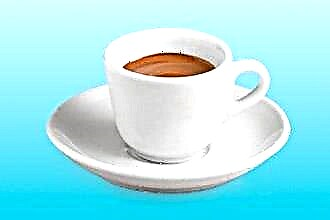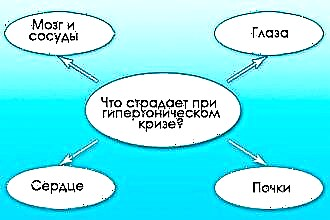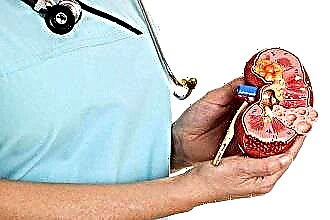With the help of coughing, the airways are cleared and freed of phlegm or foreign bodies that have got there. Many, as soon as it appears, immediately run to buy effective cough pills. Is it correct?
The desire to get rid of a cough by suppressing the cough reflex is understandable, but fundamentally wrong. After all, if a person stops coughing, the airways will gradually fill with constantly produced phlegm. However, it is still necessary to eliminate or at least alleviate the cough if it becomes debilitating. What cough tablets can I take? Today there are drugs in various forms - coated pills, lozenges and effervescent cough tablets. They must be selected strictly individually. Let's try to understand the variety of medicines and the peculiarities of their use.
Why are there so many cough pills?
 The answer to this question is very simple - cough is different. It appears for various reasons and is a symptom of various ailments. Therefore, it becomes necessary to buy the most effective cough tablets in each case. This is the only way to cure the disease itself, as well as to alleviate or completely eliminate a certain type of cough.
The answer to this question is very simple - cough is different. It appears for various reasons and is a symptom of various ailments. Therefore, it becomes necessary to buy the most effective cough tablets in each case. This is the only way to cure the disease itself, as well as to alleviate or completely eliminate a certain type of cough.
The mucous membrane lining the bronchi produces mucus all the time. However, as soon as a pathological process begins to develop in the respiratory tract, the volume of this sputum increases sharply. Excess mucus is excreted exclusively through coughing. They call him productive. Even if phlegm does not accumulate, irritation of the mucous membrane in the airways also causes a cough. It is considered unproductive.
So, cough is divided into 2 types: dry (unproductive) and wet (productive). Each type is treated differently. And drugs from one are completely unacceptable to use with another.
For example, if you take pills for dry cough when wet, the bronchial lumens are completely blocked by constantly produced phlegm. In the same way, it is completely pointless to use tablets against a wet cough (they make the sputum liquefied and make it easier to cough up) with a dry type.
When a cough occurs, one must not think about which cough tablets to take to eliminate this symptom. You should, first of all, act on the cause that provoked its occurrence. Otherwise, the treatment will not bring the expected effect.
Classification of drugs
 Each drug has its own purpose and is effective only for a specific type of cough. In accordance with the characteristics of the effect on the body, the entire range of tablet pharmaceutical products is divided into 3 large categories:
Each drug has its own purpose and is effective only for a specific type of cough. In accordance with the characteristics of the effect on the body, the entire range of tablet pharmaceutical products is divided into 3 large categories:
- Means "turning off" the cough reflex.
- Mucolytics.
- Expectorant medicines.
The drugs from the first category, which inhibit the cough reflex, act at the level of the brain. Their effect is that in the brain this reflex seems to be turned off. As a result, the person simply stops coughing. He does not even have the urge to do this.
The category of mucolytics is represented by medicines that make too viscous sputum of increased density more liquid. They also help to bring it out of the respiratory system.
Expectorant drugs activate the contractile activity of smooth muscle cells, which are located under the mucous membrane lining the respiratory system. Thus, the removal of accumulated sputum is stimulated. And the person safely clears her throat, clearing the airways.
In short, antitussive medications are needed to suppress coughs. Mucolytic medicines reduce the thickness of the phlegm and provide relief from a severe cough. And expectorants can stimulate the appearance of a productive cough, due to which the active coughing up of all sputum accumulated in the respiratory organs will begin.
In addition to the indicated categories of drugs, there are drugs with combined properties. It is much more convenient to use them, because in one tablet the qualities of two or even three means are concentrated. Here are examples of combinations of properties in such drugs:
- oppression of the cough reflex and expectoration;
- suppression of the cough reflex and the fight against inflammation;
- mucolytic property and expectoration;
- expectoration and fight against inflammation;
- expectoration and antibacterial properties;
- expectoration and bronchodilator action;
- expectoration, fight against inflammation and mucolytic properties.
Forms of medicines
All cough suppressants are divided into several varieties in accordance with their physical properties and the characteristics of their administration:
- Coated tablets. These medications should only be taken whole. They must not be bitten or chewed. It is necessary to drink coated tablets with at least half a glass of water.
- Effervescent. From these medicines, a solution is made for internal administration. They are dissolved in a glass of water. During the dissolution process, the medicine emits a characteristic hissing sound. They are often referred to as either mucolytics or expectorants.
- Sucking (chewing as an option). Preparations of this form must be slowly absorbed or chewed in the mouth. Such drugs are considered mucolytics or expectorant drugs that have a distracting effect.
 Effervescent tablets are presented in pharmacies by the medicines "Mukobene" and "ACC". These are mucolytics that should be taken when phlegm needs to be thinned and made easier to separate. The therapeutic effect achieved with the help of such "effervescent" is comparable to the effect of ordinary tablets with a special shell. True, the rate of its onset in effervescent tablets is much higher. Therefore, if a cough with viscous sputum is difficult to tolerate, it is advisable to use this particular dosage form. In all other cases, you can choose drugs in a form that is more to your taste and is convenient for the person himself.
Effervescent tablets are presented in pharmacies by the medicines "Mukobene" and "ACC". These are mucolytics that should be taken when phlegm needs to be thinned and made easier to separate. The therapeutic effect achieved with the help of such "effervescent" is comparable to the effect of ordinary tablets with a special shell. True, the rate of its onset in effervescent tablets is much higher. Therefore, if a cough with viscous sputum is difficult to tolerate, it is advisable to use this particular dosage form. In all other cases, you can choose drugs in a form that is more to your taste and is convenient for the person himself.
Among the sucking drugs, the most vividly therapeutic effect is manifested in the Doctor MOM and Alex Plus lozenges. Note that “Doctor MOM” lozenges should be taken to improve the expectoration of sputum, and “Alex Plus” lozenges are an excellent mucolytic.
In addition to the medicines mentioned, pharmacies offer a wide range of different cough drops. However, they do not belong to drugs, but to OTC remedies for symptomatic therapy. Halls antitussive sucking medicine and the like can be cited as an example.
The medicinal properties of sucking tablets are practically no different from the properties of ordinary tablets coated with a special coating. The only difference is that specific ingredients are included in the cough lozenges or chewable tablets. They are needed for a kind of distracting maneuver. These ingredients create a cooling effect in the mouth that significantly improves well-being.
Today, cough tablets with a composition of extracts of products and plants such as honey, glycerin, cherries, linden, acacia, eucalyptus, licorice and menthol can be bought at any pharmacy.
What medicines are used for different types of cough
 Here is a short list that will include the generally accepted international and commercial (pharmacy) names for cough pills, belonging to different categories. First, we indicate the main active ingredient, and then, in brackets, we list several drugs that contain it.
Here is a short list that will include the generally accepted international and commercial (pharmacy) names for cough pills, belonging to different categories. First, we indicate the main active ingredient, and then, in brackets, we list several drugs that contain it.
Drugs that have an antitussive (depressing the cough center in the brain) action include:
- with codeine (Tepincod, Nurofen Plus, Codterpin and Kaffetin);
- with ethylmorphine ("Ethylmorphine hydrochloride");
- with butamirate (Omnitus and Codelac Neo);
- with prenoxdiazine ("Libexin");
- with glaucine (Bronholitin, Bromhexin and Glauvent);
- with oxeladine ("Tusuprex" and "Paxeladin");
- with dextromethorphan ("Gripex", "Caffetin Cold" and "Padeviks").
These pills, which suppress cough by inhibiting the corresponding reflex, effectively fight debilitating, unproductive coughs of various origins.
Drugs with a pronounced mucolytic effect include the following drugs:
- with acetylcysteine ("Mukobene", "Fluimucil" and "ACC");
- with ambroxol (Ambrohexal, Ambrobene, Mucobron and Lazolvan);
- with bromhexine ("Phlegamin", "Bromhexine" and "Ascoril");
- with carbocisteine ("Mukosol", "Carbocisteine" and "Mukodin").
These mucolytics should be taken if there is a need to thin the phlegm and facilitate its separation. These medications provide relief from severe and hacking coughs with a small volume of thick, sticky, high-density sputum.
 The group of expectorant medicines includes the following medicines:
The group of expectorant medicines includes the following medicines:
- with guaifenesin ("Ascoril" and "Stopussin");
- with sodium bicarbonate ("Sodium bicarbonate");
- with potassium iodide ("Amtersol");
- with licorice (Fitolor, Travisil and Doctor IOM);
- with marshmallow root ("Mukaltin");
- with thyme (Bronchipret and Gelomirtol);
- with thermopsis ("Codelak Broncho", "Thermopsis grass" and "Thermopsol").
Note that drugs from the expectorant category are extremely rarely produced in the form of tablets, since it is quite difficult to do it technologically. Considering that most of the medicines from this group are herbal and are represented by extracts from various medicinal plants, it is much more convenient to make them in the form of a liquid (syrup, solution, suspension powders or granules, and so on).
The dosage of each drug is indicated in the instructions. The doctor, if necessary, can make an adjustment, which must be adhered to.
Are there the best pills?
In medicine, there are no such concepts as "good" or "best" drugs. The fact is that each drug that is presented on the pharmaceutical market is created for a very specific situation (to eliminate a symptom or pathogen). This suggests that each separately taken drug, in particular cough tablets, has clearly prescribed indications for use and, of course, contraindications.
 The instructions attached to the medicine describe in detail under what conditions this particular drug will show maximum effectiveness. Hence the conclusion: in each separately considered situation, the medication that has direct indications for it will be good. Let us emphasize that such drugs are usually called optimal. And just abstract good or better do not exist.
The instructions attached to the medicine describe in detail under what conditions this particular drug will show maximum effectiveness. Hence the conclusion: in each separately considered situation, the medication that has direct indications for it will be good. Let us emphasize that such drugs are usually called optimal. And just abstract good or better do not exist.
For example, with an unproductive cough, pills that inhibit the cough reflex are highly effective. They usually contain codeine, butamirate, levodronpropizine, prenoxdiazine, oxeladine, glaucine, or dextromethorphan. Drugs containing codeine are prescription drugs because they can only be taken under medical supervision. All other antitussives are relatively safe.
If you need to get rid of a wet cough, in which a small amount of phlegm is released, it is recommended to use mucolytics. Tablets with carbocisteine, acetylcysteine, ambroxol, bromhexine or guaifenesin combine high efficacy, relative safety and good tolerance with extremely rare side effects.
If a wet cough is associated with a large volume of secreted sputum, expectorant medications should be used. The optimal herbal medicines are "Thermopsis", "Gelomirtol", "Bronchipret", "Mukaltin".
And finally
 In the process of choosing the right cough medicine, you should always remember that a cough is just a symptom of a disease. Therefore, it should be treated correctly, directing efforts to eliminate the cause of the disease, that is, its causative agent. When the disease is defeated, the cough will disappear.
In the process of choosing the right cough medicine, you should always remember that a cough is just a symptom of a disease. Therefore, it should be treated correctly, directing efforts to eliminate the cause of the disease, that is, its causative agent. When the disease is defeated, the cough will disappear.
Fighting with only one symptom is an unsuccessful exercise that threatens the development of complications. In addition, treatment must be carried out in a comprehensive manner. To speed up recovery, it is important not only to establish the cause of the disease, but also to strengthen the immune system.
For the treatment to be as effective as possible, it is necessary to use several methods at once. For example, not only to drink or dissolve pills, but also to do inhalation and rinsing.
Today there are a fairly large number of medicines designed to eliminate different types of cough (you can find a detailed list of them on the Internet). To choose the right drug and not harm yourself, you need to consult a doctor in a timely manner. An experienced specialist will prescribe the optimal remedy based on the clinical picture and the results of the studies performed.



